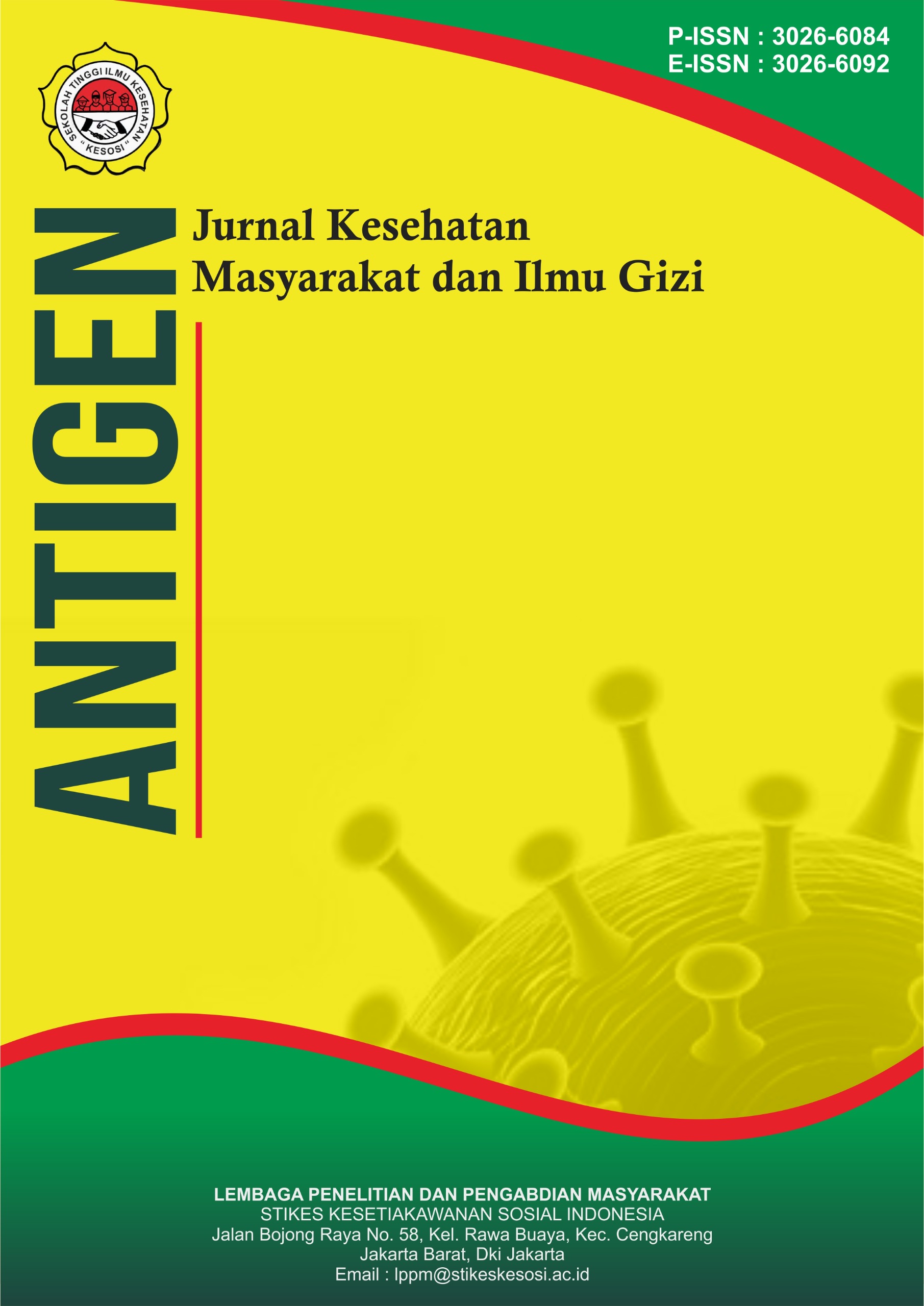Mengonsumsi Bangkai Binatang dalam Perspektif Islam dan Kesehatan
DOI:
https://doi.org/10.57213/antigen.v2i4.420Keywords:
Consumption Of Carrion, Religious Perspective, Health RisksAbstract
The consumption of carrion is a sensitive topic regulated in various religious traditions, including Islam, Christianity, and Judaism. Generally, Islam prohibits the consumption of carrion, except in situations where there are significant concerns regarding survival. This religious perspective aims to enforce strict adherence to maintain the sanctity and health of society. The health perspective highlights carrion as a dangerous food source because it has the potential to be contaminated with bacteria, parasites, or toxins, posing risks of diseases such as bacterial infections, food poisoning, and parasitosis. As a result, both the religious perspective and the health viewpoint agree on the warnings regarding the dangers of carrion, except in emergency situations with high ethical considerations or surgical interventions in severe cases. The purpose of this article is to explore the reasons behind the individual prohibition of consuming carrion from both religious and health perspectives and its effects on public health.
References
Afdal, A. (2023). Makanan haram dan pengaruhnya dalam kehidupan. Islamic Family Journal (IFJ), 5(2). Retrieved from https://lp2msasbabel.ac.id/jurnal/index.php/IFJ/article/view/1492
Anshori, M. (2020). Makanan haram dan pengaruhnya dalam kehidupan. Islamitsch Familierecht Journal, 1(1), 66–90.
Bangkai. (n.d.). Dalam Kamus Besar Bahasa Indonesia (KBBI). Retrieved September 24, 2024, from https://kbbi.web.id/bangkai
Dangerfield, C. R., Frehner, E. H., Buechley, E. R., Şekercioğlu, C. H., & Brazelton, W. J. (2020). Succession of bacterial communities on carrion is independent of vertebrate scavengers. PeerJ, 8.
Dompet Dhuafa. (2023). Selain perintah agama, ini alasan ilmiah kenapa daging babi diharamkan. Retrieved September 25, 2024, from https://www.dompetdhuafa.org/selain-perintah-agama-ini-alasan-ilmiah-kenapa-daging-babi-diharamkan/
Fajri, A., & Rahmawati, I. (2021). Kausalitas historiografi Islam tentang anjing, ular, dan babi dalam perspektif ta’aqquli. Jurnal Ilmiah Pendidikan dan Pembelajaran, 7(1), 12-20. Retrieved from https://jurnal-stiepari.ac.id/index.php/jispendiora/article/view/484
JS UGM. (2023, Juli 15). Hikmah pelarangan memakan bangkai hewan dalam Al-Qur’an. Retrieved from https://js.ugm.ac.id/2023/07/hikmah-pelarangan-memakan-bangkai-hewan-dalam-al-quran/
Khazanah. (2024). Penjelasan mengapa bangkai haram dimakan umat Islam. Republika. Retrieved from https://khazanah.republika.co.id/berita/q4kahm320/penjelasan-mengapa-bangkai-haram-dimakan-umat-islam
Kumar, S., & Singh, S. (2019). Effectiveness of communication skills training on improving the communication skills of medical students: A systematic review. Journal of Education and Health Promotion, 8, 120. https://pubmed.ncbi.nlm.nih.gov/31283221/
Lubis, S. (2022). Makanan halal dan haram dalam perspektif fiqih Islam. Jurnal Ilmiah Al-Hadi, 7(2), 12–30.
MUI. (2022). Belalang goreng: Apakah halal dikonsumsi? Majelis Ulama Indonesia. Retrieved September 24, 2024, from https://halalmui.org/belalang-goreng-apakah-halal-dikonsumsi/
Rumaysho. (2020). Bangkai yang tidak termasuk najis. Retrieved from https://rumaysho.com/25946-bangkai-yang-tidak-termasuk-najis.html
TOHIR, M., & GHUFRON, A. (2024). Bangkai hewan perspektif al-Qur'an dan sains. Al-Thiqah: Jurnal Ilmu Keislaman, 7(1), 137-154. ISSN 2685-9467. https://ejurnal.stiuda.ac.id/index.php/althiqah/article/view/183
Um Surabaya. (2024). Mengapa konsumsi daging bangkai berbahaya? Ini penjelasan dosen UM Surabaya. Retrieved from https://www.um-surabaya.ac.id/article/mengapa-konsumsi-daging-bangkai-berbahaya-ini-penjelasan-dosen-um-surabaya
Universitas Airlangga. (2023). Daging babi adalah rumahnya cacing pita. Retrieved from http://ners.unair.ac.id/site/index.php/news-fkp-unair/30-lihat/856-daging-babi-adalah-rumahnya-cacing-pita
Yasin, M., & Alsy, A. (2020). Konsep makanan halal dan haram dalam perspektif Islam. Anwarul: Jurnal Ilmu Sosial dan Humaniora, 1(2), 101-110. https://ejournal.yasin-alsys.org/index.php/anwarul/article/view/1509
Zahra, M. (2022). Konsep makanan halal dan haram dalam perspektif Islam dan Kristen. Fikrah: Jurnal Ilmu Dakwah dan Komunikasi, 8(2), 1647. https://journal.stiba.ac.id/index.php/fikrah/article/view/1647
Downloads
Published
Issue
Section
License
Copyright (c) 2024 Antigen : Jurnal Kesehatan Masyarakat dan Ilmu Gizi

This work is licensed under a Creative Commons Attribution-ShareAlike 4.0 International License.






